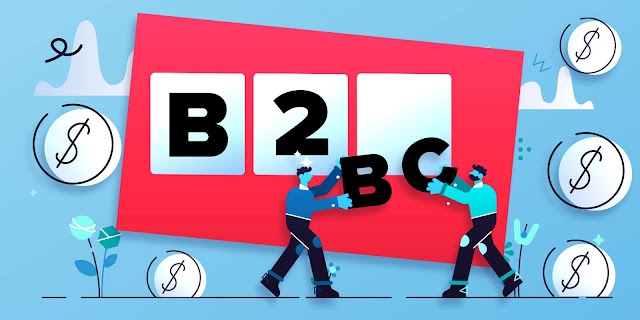B2B vs. B2C Digital Marketing: Key Differences & Strategies
Digital marketing has revolutionized the way businesses connect with their audiences. However, marketing strategies differ significantly depending on whether you're targeting businesses (B2B) or individual consumers (B2C). Understanding these differences is crucial if you want to craft a winning strategy that drives results.
Whether you’re a business owner or an aspiring marketer, enrolling in a digital marketing course in Thane can help you master the art of B2B and B2C marketing. Let’s explore the key differences between these two approaches and the best strategies for each.
Understanding B2B and B2C Digital Marketing
Before diving into the differences, let's define what B2B and B2C digital marketing entail.
What is B2B Digital Marketing?
B2B (Business-to-Business) digital marketing refers to strategies used by businesses to market their products or services to other businesses. This type of marketing focuses on building long-term relationships, emphasizing logic, expertise, and return on investment (ROI).
What is B2C Digital Marketing?
B2C (Business-to-Consumer) digital marketing, on the other hand, is geared toward individual consumers. This approach focuses on emotions, entertainment, and quick decision-making to drive conversions.
If you’re interested in refining your marketing approach for either audience, enrolling in a digital marketing diploma in Thane can equip you with the right skills.
Key Differences Between B2B and B2C Digital Marketing
While both B2B and B2C marketing share common digital channels, their execution varies significantly. Here’s how:
1. Target Audience & Buying Behavior
B2B
Targets businesses and decision-makers
Longer sales cycle with multiple stakeholders
Decisions are based on logic, ROI, and efficiency
Focus on relationship-building and trust
B2C
Targets individual consumers
Shorter sales cycle with impulsive buying decisions
Emotion-driven purchases (e.g., desire, fear, happiness)
Focus on brand experience and personal connection
2. Content Marketing Strategy
B2B
Detailed, data-driven content such as whitepapers, case studies, and webinars
LinkedIn, industry blogs, and email marketing are key channels
Content is meant to educate and build authority
B2C
Engaging, visually appealing content such as videos, infographics, and social media posts
Instagram, Facebook, and YouTube are dominant platforms
Content is meant to entertain and inspire quick actions
Effective Strategies for B2B Digital Marketing
If you’re targeting businesses, your digital marketing strategy should be focused on building credibility and long-term relationships. Here are some proven strategies:
1. LinkedIn Marketing
LinkedIn is the go-to platform for B2B marketers. You can:
Share industry insights and case studies
Run targeted LinkedIn ads
Connect with decision-makers through InMail
2. Email Marketing & Automation
Email marketing plays a huge role in B2B sales cycles. To maximize results:
Use personalized, value-driven email sequences
Nurture leads with educational content
Implement automation for lead scoring
3. SEO & Content Marketing
B2B buyers often research before making a decision. You should:
Optimize content for industry-specific keywords
Publish in-depth blog posts and case studies
Implement a solid backlinking strategy
Effective Strategies for B2C Digital Marketing
If you’re targeting consumers, your focus should be on capturing attention quickly and driving immediate action. Here’s how:
1. Social Media Marketing
Social platforms are the heart of B2C marketing. You should:
Run engaging ad campaigns on Facebook, Instagram
Use influencer marketing to boost credibility
Leverage user-generated content (UGC) to build trust
2. Emotional Storytelling
Consumers buy based on emotions. To connect with your audience:
Use storytelling in ads and brand messaging
Create video content that resonates emotionally
Highlight testimonials and real-life experiences
3. Paid Advertising (PPC & Social Ads)
B2C marketing relies heavily on paid ads. To increase conversions:
Use retargeting to bring back potential buyers
A/B test different ad creatives
Optimize landing pages for better UX
Conclusion
Both B2B and B2C digital marketing have their unique challenges and opportunities. While B2B marketing focuses on logic, relationships, and long-term value, B2C marketing is all about emotion, engagement, and quick conversions.
No matter which approach you take, having a strong digital marketing foundation is essential. If you want to excel in this field, enrolling in a digital marketing course in thane can give you the skills needed to thrive.
What’s your biggest challenge when it comes to B2B or B2C marketing? Share your thoughts in the comments below!




Comments
Post a Comment